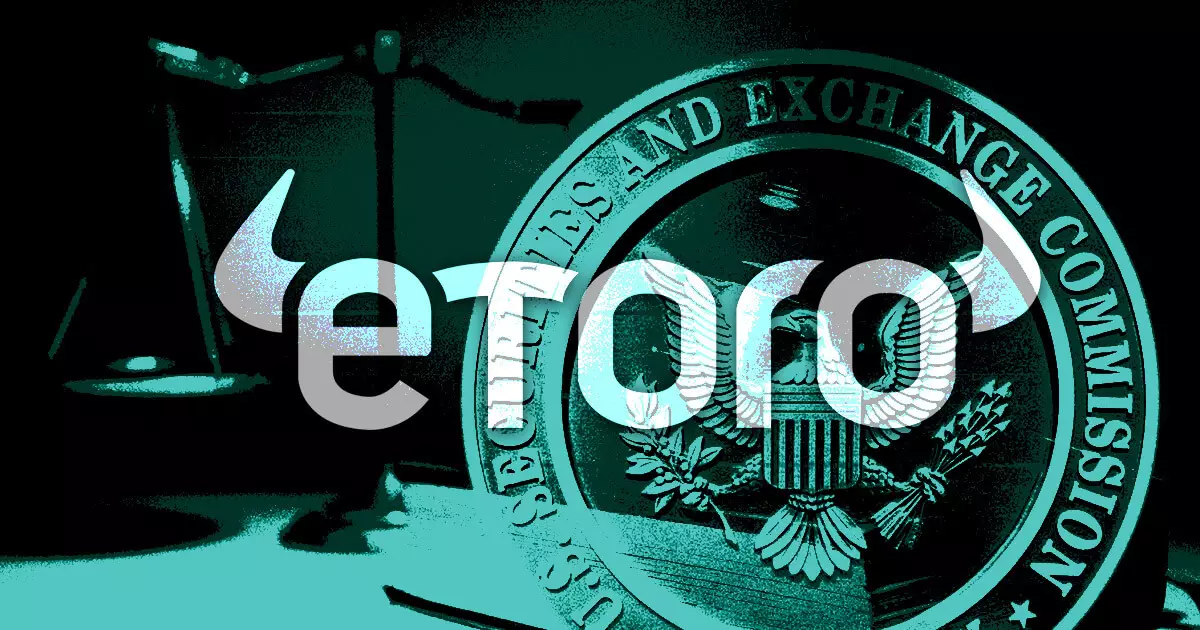In a significant move that underscores the ongoing regulatory pressures faced by cryptocurrency platforms, eToro has announced a halt on trading for the majority of digital assets available on its platform. This decision comes on the heels of a $1.5 million settlement with the U.S. Securities and Exchange Commission (SEC). The SEC’s investigation revealed that eToro had permitted U.S. customers to trade certain cryptocurrency assets classified as securities without adhering to essential federal registration protocols. While the company opted not to explicitly admit or deny these allegations, this agreement marks a critical pivot for the firm as it scales back its crypto offerings, now limited to a select few, notably Bitcoin, Bitcoin Cash, and Ethereum.
The implications of this settlement extend beyond mere financial penalties. Gurbir S. Grewal, director of enforcement at the SEC, emphasized that the fine reflects eToro’s acknowledgment of its previous oversights in maintaining compliance with federal securities laws. By removing investment contract tokens from its platform, eToro strives to align more closely with federal regulations. This shift is not only aimed at protecting investors but is also viewed as a potential model for other crypto intermediaries navigating the evolving regulatory landscape. The SEC’s ongoing crackdown on prominent crypto firms, including Binance, Kraken, and Coinbase, signifies a larger trend of tightening regulations in the cryptocurrency sector.
Future Directions for eToro
eToro’s co-founder and CEO, Yoni Assia, expressed optimism regarding the settlement, asserting that it enables the firm to refocus its efforts on delivering innovative financial products to its U.S. clientele. Assia stressed the importance of compliance and collaboration with regulators globally, highlighting an anticipated regulatory framework for crypto assets in the U.S., akin to existing structures in the UK and Europe. However, this raises important questions about the broader impact on innovation within the cryptocurrency space. With stricter regulations now in place, how can platforms like eToro continue to attract users while maintaining compliance?
For eToro’s users, this transition will require careful navigation. The platform has provided a timeline for users to either close their existing crypto positions or transfer supported cryptocurrencies to their eToro wallet prior to March 11, 2025. Notably, any residual crypto assets, excluding BTC, BCH, ETH, or unsupported coins, will be liquidated by March 18, 2025. This significant deadline invites users to rethink their strategies in light of these changes and could influence user sentiment towards compliance and security in the crypto trading environment.
eToro’s recent actions embody the tension between innovation and regulation within the cryptocurrency market. As the SEC continues to ramp up its enforcement strategies, platforms like eToro must adapt to the regulatory landscape while striving to innovate. This settlement serves as a guide for the industry, showcasing the necessity for compliance and the pressing need for structured regulations that safeguard both businesses and investors. Ultimately, the developments at eToro reflect a pivotal moment in the ongoing dialogue between the cryptocurrency sector and regulatory authorities, emphasizing that finding balance is essential for the sustainable growth of the digital asset ecosystem.



















